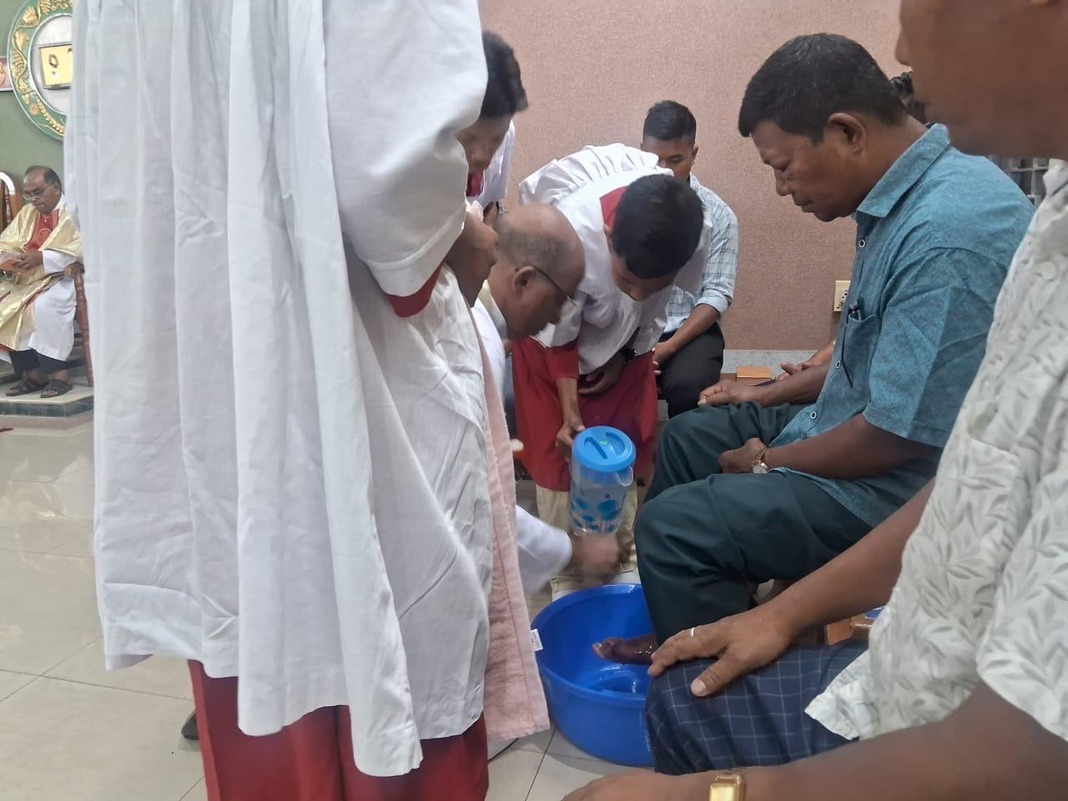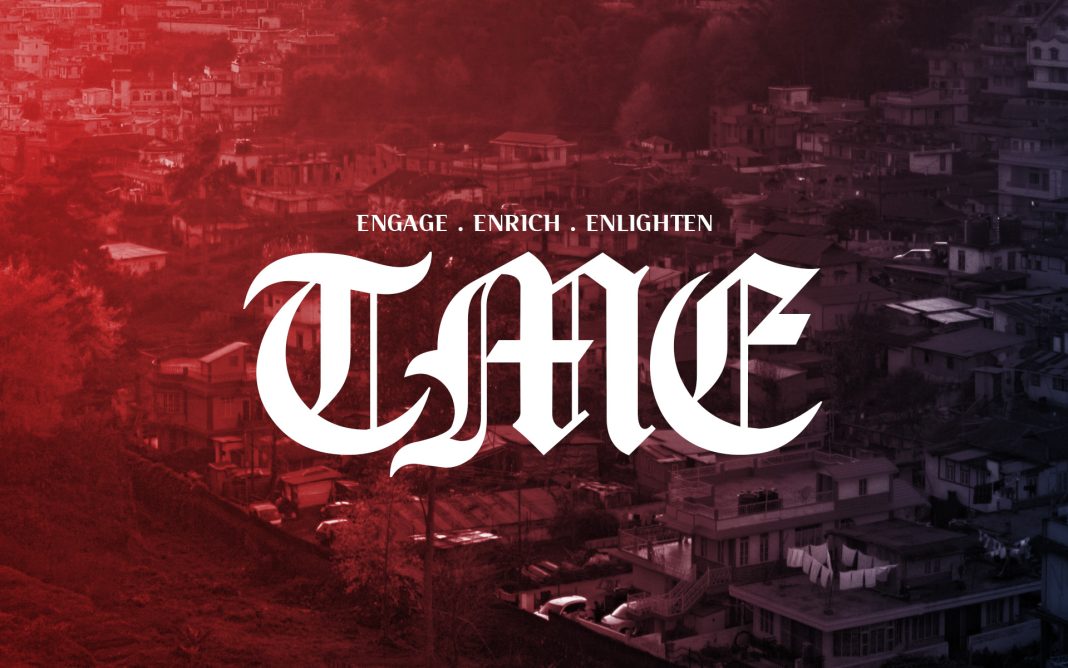
Tura, April 17: Churches across the Garo Hills region were filled with devotees solemnly marking Maundy Thursday to commemorate the Last Supper of Lord Jesus Christ with his disciples- a significant day in the Holy Week leading up to Easter Sunday.
Emphasizing themes of humility, service, and love, priests from the Catholic Church, led by Bishop of Tura Andrew R Marak and Auxiliary Bishop C J Jose, led the observances including the traditional feet-washing ceremony, reenacting Jesus’ act of washing his disciples’ feet, symbolizing humility and service.
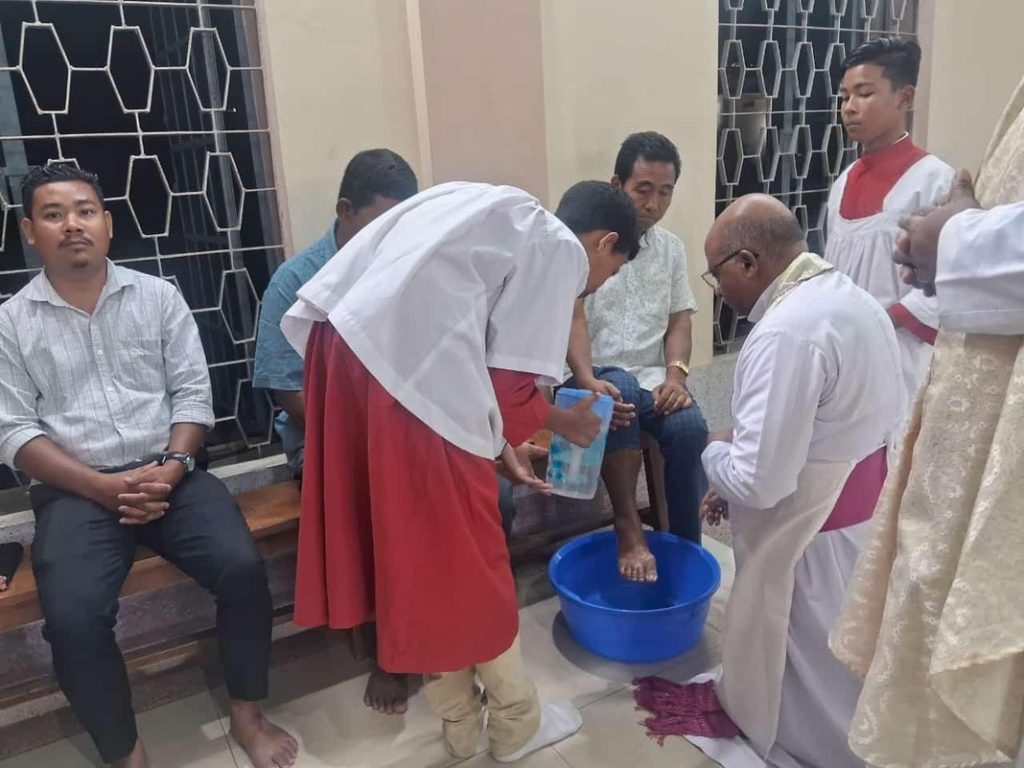
Bishop Andrew reenacted Jesus’ washing of the feet of his disciples at the Cathedral Church in Tura, while Auxiliary Bishop Jose conducted the reenactment at St. Luke Church in Walbakgre, Tura.
“Maundy comes from the word ‘mandatum’ which means commandment, the Commandment of Love. Imitate the Lord in service. For followers of Christ authority is service,” said Bishop Jose.
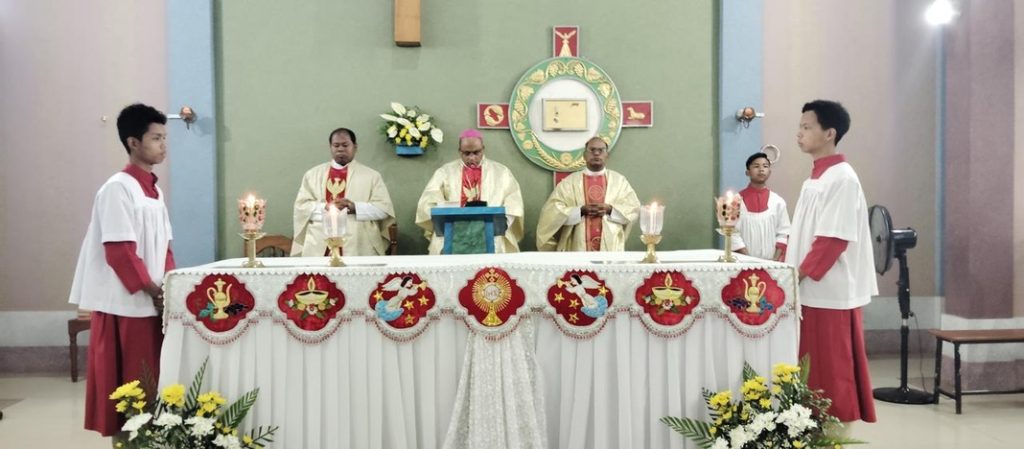
In churches throughout Tura, Williamnagar, Baghmara, and surrounding villages, special services were held through the evening, the rituals led by priests, pastors and reverends, with many congregants participating in the symbolic act.
Observing the Last Supper of Christ, Catholics took the Holy Communion, instituted by Jesus during the Last Supper, a crucial part of Christianity with believers partaking in bread and wine as symbols of Christ’s body and blood.

Several thousand Catholic faithful attended the special service at the Sacred Heart Shrine in Tura, with an equal number attending the evening service at the Tura Baptist Church.
For the Catholic faithful, the Last Supper on Maundy Thursday starts the night vigil to remember the suffering of Christ before his crucifixion on the Cross on Good Friday. The faithful abstain from food and hold special prayers through the night.
“Maundy Thursday reminds us of Christ’s command to love and serve one another. In Garo Hills, we come together as a community to reflect on this message,” said Bishop Jose.
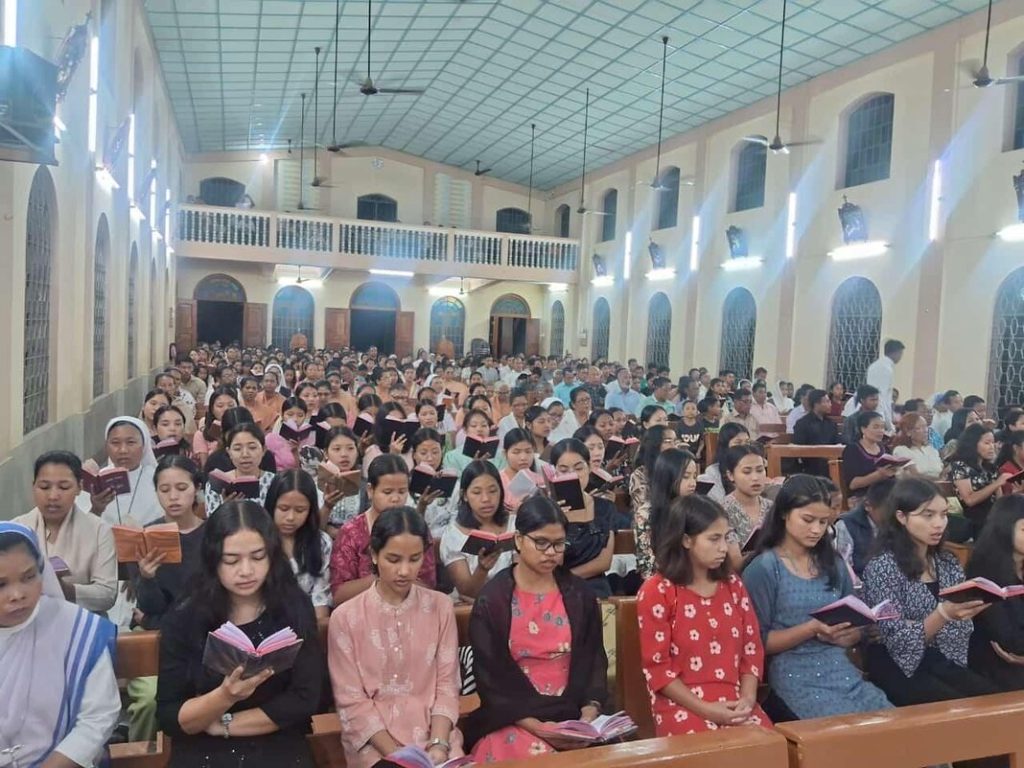
Similar sentiments were echoed across Churches in Williamnagar and Baghmara, and smaller rural parishes in areas like Chokpot and Resubelpara also held modest but heartfelt observances on this solemn occasion.
In many of these villages, community members gathered in simple church settings, often combining traditional Garo hymns with Christian liturgy.


